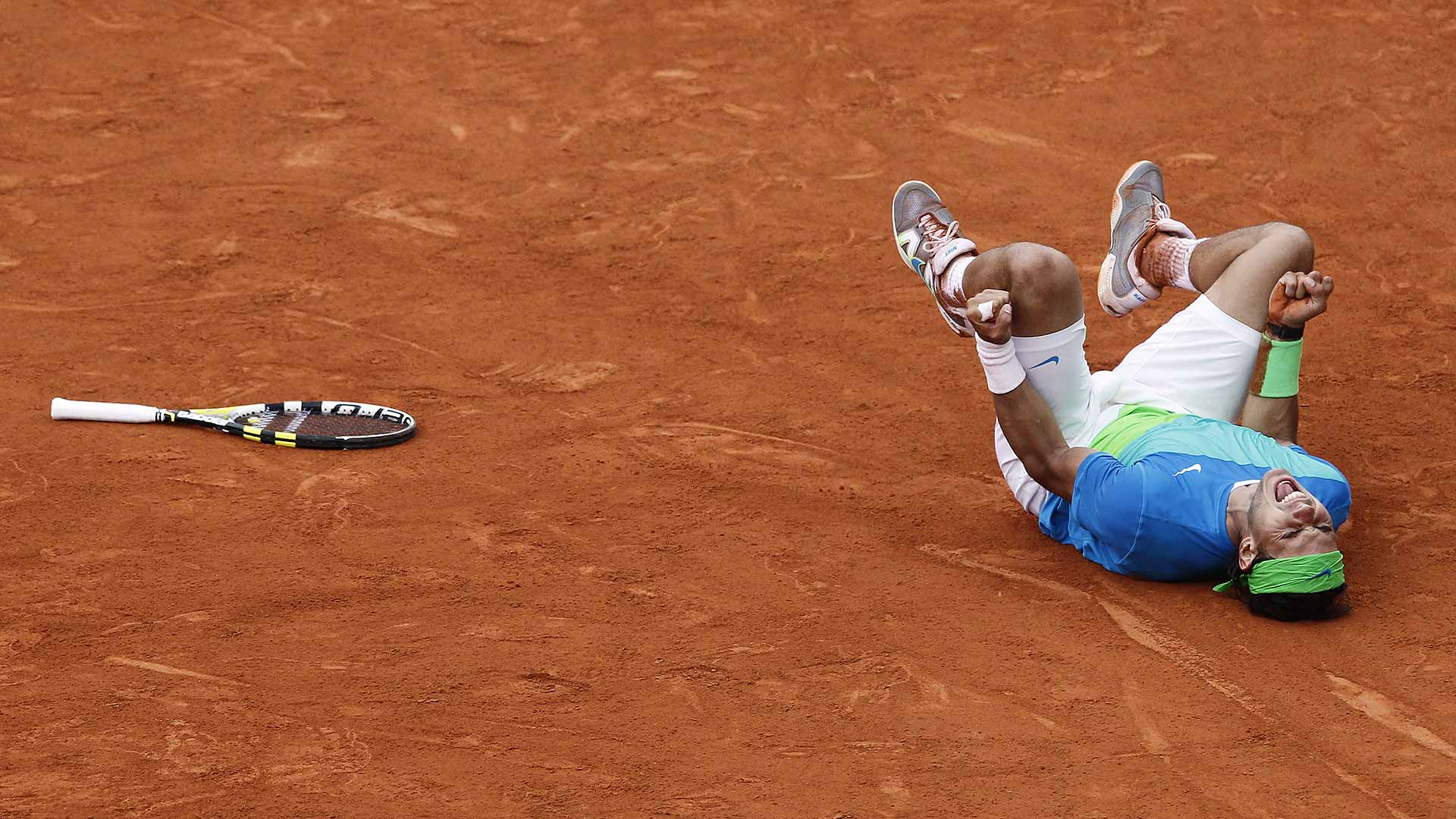

Final, d. Soderling 6-4, 6-2, 6-4
Rafael Nadal was no longer perfect in Paris, having lost to Sweden’s Robin Soderling in the Round of 16 the previous year. As fate would have it, the pair would meet again in 2010 - this time in the final.
Mats Wilander, who won his first of three Roland Garros titles on debut in 1982, regards that match as the most significant in Nadal’s six triumphs. “That one stands out to me because he changed his game after losing to Soderling in 2009 and came back in 2010 and had nearly as good a year as Djokovic in 2011,” he explains. “I think that was the first match where Nadal really stepped it up, and of course he won Wimbledon straight after and the US Open later. It was hard to predict that Nadal was on the brink of having his best year so far on tour before the final.”
Similar to his last three title runs at Roland Garros, Nadal had reached the championship match without losing a set. But of his first six opponents - Gianni Mina, Horacio Zeballos, Lleyton Hewitt, Thomaz Bellucci, Nicolas Almagro and Jurgen Melzer - none was ranked inside the Top 20 of the South African Airways ATP Rankings.
Soderling, then ranked No. 7 at the time, had ousted defending champion Roger Federer in the quarter-finals and outlasted Tomas Berdych in a five-set semi-final to reach the Roland Garros final for a second straight year.
Wilander gave the advantage to his fellow Swede ahead of the match. “I thought Soderling was the slight favorite going in,” he admits. “I did think that Soderling would beat him that time since he had beaten him the year before. He had come in and beaten Roger Federer, the defending champion. We also hadn’t seen the transformation of Nadal after that loss.”
Nadal had endured his share of struggles following his defeat to Soderling in 2009. Hampered by knee injuries, he went title-less for 10 months and dropped to No. 4 before breaking through in the spring to become the first player to sweep all three clay-court ATP World Tour Masters 1000 tournaments in the same season.
Similar to Wilander, who bounced back from a loss to Ivan Lendl in 1984 to defeat the Czech in the 1985 final, Nadal got retribution for the sole blemish on his Roland Garros record.
Back in familiar territory, playing for the Roland Garros title, Nadal dismissed Soderling 6-4, 6-2, 6-4. Afterwards, he buried his head in his towel and wept. The win guaranteed the Spaniard’s return to World No. 1, and began an impressive stretch in which Nadal went on to win Wimbledon for a second time and capture his first US Open title to complete the career Grand Slam.
“I think that win, that final against Robin Soderling, sort of got his career back on track,” says Wilander. “It was the match that made him believe that he’s not done and it transformed his game.”
REMEMBER PARIS
2005: Chang On The First Triumph
2006: Kuerten On Being Defending Champion
2007: Moya On Playing Nadal
2008: Gilbert On A Dominant Performance
2010: Wilander On A Momentous Win
2011: Agassi On Nadal's Clay Form
2012 Tribute: Roland Garros Is Rafa's House